If your baby was on a consistent sleep schedule but is suddenly waking up at odd hours, fighting naps, and fussing, you may be dealing with sleep regression. Sleep regression can be frustrating for new parents who just want to get some rest at night. But we’re here to help! Read on below to learn more about this common infant sleep milestone.
What is Baby Sleep Regression?
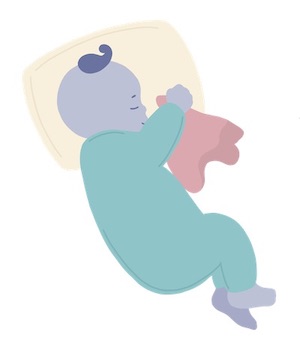 Sleep regression is very common in the first year of a baby’s life. Reaching new developmental milestones can disrupt a baby’s sleep pattern and mean that even if you thought you had the bedtime routine down pat, your baby is waking up throughout the night again. If your baby is experiencing sleep regression, don’t panic! This is a normal side effect of all the big developmental changes occurring as he or she grows.
Sleep regression is very common in the first year of a baby’s life. Reaching new developmental milestones can disrupt a baby’s sleep pattern and mean that even if you thought you had the bedtime routine down pat, your baby is waking up throughout the night again. If your baby is experiencing sleep regression, don’t panic! This is a normal side effect of all the big developmental changes occurring as he or she grows.
Signs of Sleep Regression
If you notice an increase in fussiness or more frequent night waking, your baby may be experiencing a sleep regression. Common signs of an ongoing sleep regression include fighting naps or bedtime, having trouble falling asleep (especially if your baby fell asleep quickly before), frequent night waking, and more fussing and crying during the day and night. Like you, your baby is tired and cranky from nighttime wake ups and missed naps.
What Causes Sleep Regression?
Knowing what causes sleep regression can help you understand and plan for the sleep problems your little one may encounter. Read on below to learn about a few common causes of sleep regression.
Growth Spurts
Physical growth spurts can cause sleep regression. If your baby has just learned a new skill like standing up, he or she might be so excited about practicing that they have trouble sleeping. Give your baby plenty of time to test out new skills during the day so he or she doesn’t get distracted at bedtime.
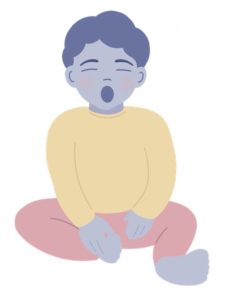
Growth spurts that make your child more active during the day might also make them hungrier at night, which can cause a regression. All this new activity can also lead to overtiredness which, ironically, may cause sleep regression.
Teething
Teething can cause a lot of discomfort for a baby and may also lead to sleep issues. Teething pain can also make it harder for babies to self soothe, negatively impacting nighttime sleep and resulting in shorter naps. Luckily, this regression will self-resolve as teething comes to an end.
Reaching New Development Milestones
A big reason for sleep regression is brain development. From perceiving more of the world around them to learning new skills like sitting up, babies are very stimulated during the first years of their lives. All these big and exciting changes naturally affect babies’ sleep habits. But these sleep regressions are natural and temporary, so don’t panic.
If you’re concerned that exciting new skills like rolling over could be dangerous for your baby, check out our When Can Babies Sleep on Their Stomach article to learn more about this development milestone.
Imbalanced Circadian Rhythms and Routine Disruptions
Newborn sleep patterns are different from ours because they have not developed a circadian rhythm yet. During the first three months of age a baby develops its circadian rhythm and sleeps for most of the day. Around month four, your baby’s circadian rhythm is developed. But, he or she still needs to get used to it! This commonly leads to a major sleep regression for up to a month.
Routine disruptions in sleep patterns can also cause a sleep regression, especially if your baby is just developing his or her sleep cycles. Try to enforce healthy sleep habits and stick to a sleep schedule to help your baby through these regressions.
Illness
Illness may also prompt a temporary sleep regression. This is not a true regression, but a result of discomfort from illnesses like fever and ear infections, which often keep babies awake at night. If you think your baby is sick, you should take him or her to a pediatrician.
When Do Babies Have Sleep Regressions?
Sleep regressions commonly occur at the five ages below, give or take a few weeks. Most babies hit common developmental milestones during these periods of time, making them very common sleep regression ages.
6 Week Sleep Regression
Newborns start to become more alert at about 6 weeks of age. If you notice your infant seems more engaged and interested in his or her surroundings, watch out for a sleep regression. At this age, babies are interested in the world around them and might push through tiredness to stay awake. Unfortunately, when babies push through tiredness they can become “overtired,” which makes it very hard to fall asleep. Luckily, this regression normally only lasts about two weeks.
4 Month Sleep Regression
At 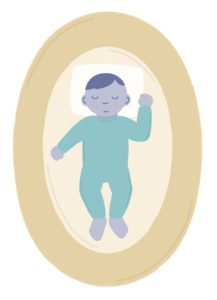 3 to 4 months of age your baby is learning tons of new skills and has developed a new circadian rhythm. They also start to need a little bit less sleep. The result is a sleep regression that can last for about a month. If you notice your baby is sleeping more restlessly and changing his or her normal nap routine, the four month regression may be oncoming. During this time, your baby will adjust to their new sleep pattern.
3 to 4 months of age your baby is learning tons of new skills and has developed a new circadian rhythm. They also start to need a little bit less sleep. The result is a sleep regression that can last for about a month. If you notice your baby is sleeping more restlessly and changing his or her normal nap routine, the four month regression may be oncoming. During this time, your baby will adjust to their new sleep pattern.
6 Month Sleep Regression
Around 6 months, your baby will develop new social and emotional awareness that could lead to separation anxiety. They’ll also develop new motor skills that could lead to restlessness and difficulty falling asleep. Be sure to encourage your baby to try out new skills during awake time to help quiet their minds during wind down and sleep times.
10 Month Sleep Regression
Between 8 to 10 months of age your baby will be on the move! As they learn to stand and crawl, they’ll also start teething. Many babies also switch from three naps to two naps a day at this time, which can throw them off schedule at night. Like all regressions, this one is temporary and should subside once your baby adjusts to his or her new schedule.
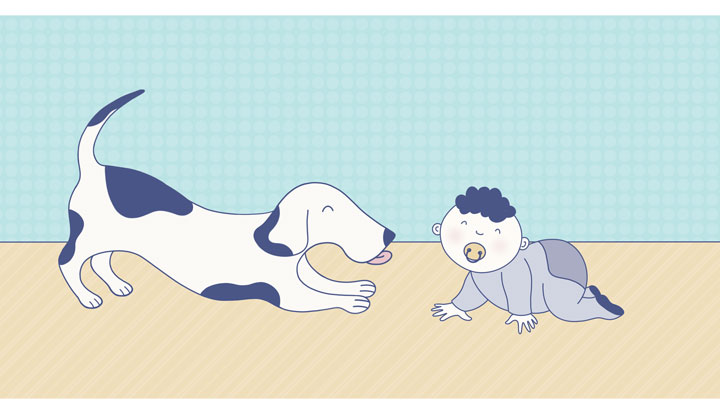
18 Month Sleep Regression
Your baby may experience heightened separation anxiety and bad dreams at this age. They might also be exploring independence and feel reluctant to go to bed because you told them to. Try letting them pick out a bedtime story or pair of pajamas to exercise some independence before bed.
Toddler Sleep Regression
Like babies, toddlers have rapidly growing bodies and minds. They may experience more vivid bad dreams, be learning how to say “no,” or get easily excited by changes in routine like starting daycare. All these changes can cause them to fight against naptime and wake up more frequently during the night. If you notice your toddler is crankier than usual, he or she may be dealing with a sleep regression.
How Long Do Sleep Regressions Last?
Most sleep regressions last two to four weeks. Remember they’re a normal part of growing up and go with the flow as well as you can during regressions.
How to Help Your Baby Through Sleep Regression
Read on below for some tips on dealing with sleep regressions.
Watch for Baby Sleep Cues
Watch your baby carefully for cues that they’re feeling drowsy and tired. This is a great time to put them down because they’ll fall asleep more easily. Not sure what to look for? Check out our Baby Sleep Guide for help.
Follow a Consistent Sleep Routine
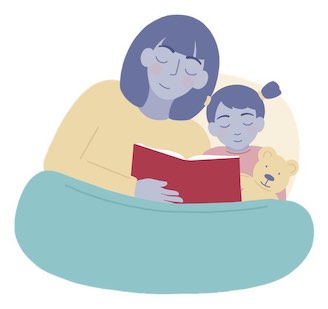 Following a consistent bedtime routine can help end a sleep regression faster. Lullabies, stories, or a bath before bed can all help indicate that it is time for sleep. You may also want to try white noise or soothing music. Check out the best white noise machines for some options.
Following a consistent bedtime routine can help end a sleep regression faster. Lullabies, stories, or a bath before bed can all help indicate that it is time for sleep. You may also want to try white noise or soothing music. Check out the best white noise machines for some options.
Help Your Baby Distinguish Night from Day
Keeping the room dark or dim at night and exposing your baby to natural sunlight during the day can help him or her learn to distinguish night and day. This will help your baby develop his or her circadian rhythm, which will be especially helpful during the four month regression. Check out The Ultimate Guide to Circadian Rhythms to learn more about the science behind sleep!
Ensure Baby Sleeps Enough During the Day
This might sound counterintuitive, but making sure your baby naps enough during the day can help them sleep throughout the night. Plenty of daytime sleep will prevent overtiredness, which can make your baby feel “wired” and prevent them from going to bed at night.
Try Sleep Training
Once your baby is old enough, you may want to try sleep training. There are several different methods to choose from, so you should pick one that will help both you and your baby get better sleep. You may want to check with a sleep consultant or pediatrician before choosing a method. As a starting point, check out: A Parent’s Guide to Helping Children Sleep.
Get Some Rest Yourself!
New parents’ sleep deprivation is a big issue and can make it harder to take good care of your child. Be sure to take time to nap when you can. It will make you more patient, attentive, and willing to give extra cuddles when your baby experiences a regression.
When to Call Your Doctor about Your Baby’s Sleep
Keep in mind not all sleep problems are caused by regressions. If your baby is having trouble breathing, call a doctor right away. Other signs you should check in with a medical provider include snoring, frequent night terrors, fever, earache, and inability to focus.
FAQs
Check out our FAQ section to learn more about baby sleep regression.
Do all babies go through sleep regression?
Most babies experience sleep regressions. But, your baby may not experience every regression in this article. For instance, he or she may experience a four month regression but skip the six month regression.
Can you prevent sleep regressions?
There is no way to prevent sleep regressions. Take a deep breath and remember they’re temporary, natural parts of your baby’s development!
How many sleep regressions do babies have?
It is common to have five or six regressions during the first two years of age (at 1.5, 4, 6, 10, and 18 months).
Should you feed your baby during sleep regression?
You can still do nighttime feedings during early sleep regressions. But around 8-10 months of age you may want to begin night weaning. Always consult with a doctor before beginning night weaning.
Do you let your baby cry it out during sleep regression?
You can give your baby a few minutes to see if he or she can self-soothe after they’re about 4 months old, but we recommend checking in on your baby to help soothe them after a few minutes of fussing.

